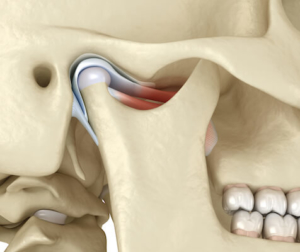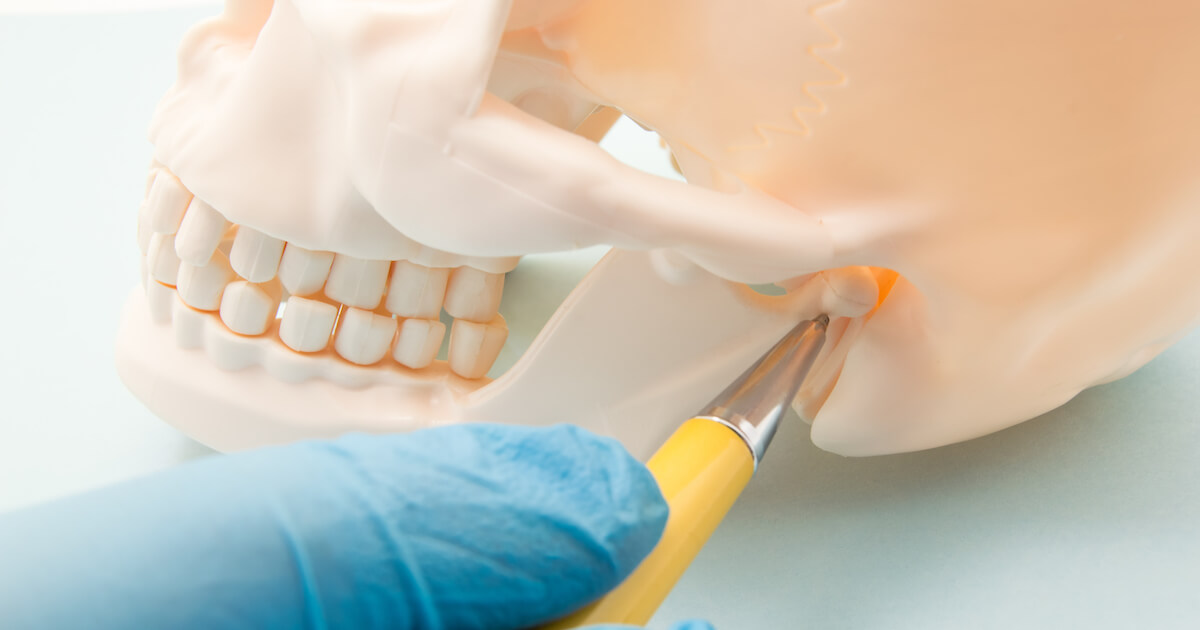TMJ Symptoms (You Should Never Ignore)
“Snap, crackle, and pop” may be desirable attributes in cereal but are concerning when they describe the sound and sensation your jaw makes when you open and close your mouth or chew. Worse still, if those sounds and sensations are accompanied by facial tension and jaw pain, you may be dealing with a TMJ disorder that warrants professional assessment and prompt treatment before it gets worse. Please continue reading to learn about the most common TMJ symptoms to watch out for, why you should never ignore them, and effective non-surgical TMJ disorder treatments offered in Victoria, B.C.
What Does TMJ Refer To? 
TMJ is an acronym used to describe your temporomandibular joint. Let’s face it, “temporomandibular joint” is a mouthful to remember, and so TMJ is more commonly used. Your temporomandibular joint (TMJ) is a ball in socket joint located on each side of your face, anterior to your ears. Your TMJ is surrounded by strong jaw muscles and ligaments that connect your lower jaw (mandible) to your upper jaw (maxilla) and facilitate the movement of your jaw when you chew, speak, open and close your mouth. TMJ disorder refers to any pain, tension, interruption, or inflammation of your temporomandibular joint that may have a known or unknown cause.
TMJ Symptoms
The most common TMJ symptoms are pain and tension on one or both sides of your lower jaw and areas surrounding your ears. Pain can be persistent or intermittent, with occasional flare-ups triggered during times of stress or after enjoying your favourite, extra-crunchy or chewy foods. Sometimes, TMJ symptoms can occur without any apparent causes. Following are several other TMJ signs and symptoms to watch out for.
- Persistent or recurring pain or tenderness on one or both sides of jaw / temporomandibular joints (pain may either be persistent or occur when opening and closing mouth or chewing)
- Aching pain in or around the ears
- Tinnitus (ringing in the ears)
- Pain, discomfort, or difficulty opening and closing mouth or chewing
- Pain, fatigue, or muscle spasms in the face, neck, and sometimes shoulders
- Clicking, popping, or grating sensation when opening and closing mouth or chewing accompanied by pain, discomfort, and tension, or limited movement
- Inability to open or close your jaw completely
- Swelling on one or booths sides of cheeks or jaw
- Dizziness and fatigue
- Frequent headaches
- Toothaches
- Changes in bite
- Facial tension and tenderness
- Locking of your jaw interfering with your ability to open or close your mouth
Summary of Contributing Factors to TMJ
What causes the onset of TMJ symptoms may or may not be obvious. However, the following includes examples of potential situations and conditions that may be causing or contributing to the onset or progression of TMJ disorder.
- Arthritis and other autoimmune/connective tissue disorders
- Jaw injury (dislocation, whiplash, direct injuries, trauma)
- Long-term (chronic) clenching and grinding of teeth (bruxism)
- Hormonal changes
- Strain from forceful or excessive biting and chewing / hard to chew foods
- Misaligned bite
- Poor posture, resulting in the forward jutting of your mandible
- Nutritional deficiencies and dehydration
- Stress and anxiety
Potential Complications if TMJ Disorder Is Left Untreated
- Increased loss of jaw mobility
- Worsening of pain and symptoms
- Bite issues resulting in damage to teeth and mandibular joint
- Recurring headaches
- Sleep apnea
Things You Can Do to Help Prevent TM
- If nocturnal teeth grinding (bruxism) or a misaligned bite are determined to be the cause, a nightguard or retainer may be issued to mitigate teeth grinding and correct jaw alignment
- Wearing protective mouth guards during contact sports and weightlifting (activities when jaw clenching is likely to occur)
- Identifying and correcting suboptimal posture
- Guided stretching (following proper instruction and demonstration by a health practitioner)
- Stress management and mindful relaxing of facial muscles
- Applying a cool pack or moist heat for up to 10 minutes at a time, throughout the day and after activity or when jaw muscles feel tight
Most Importantly
Pay attention to any signs your body sends you, signaling something isn’t quite right, and never ignore pain! While TMJ disorder can be treated at any stage, it is ideal to address any TMJ symptoms early on to prevent worsening symptoms and potential damage to your teeth and mandibular joint.
If you suspect you may be suffering from TMJ issues, book a professional assessment with one of our registered massage therapists or physiotherapists to identify and help correct any TMJ alignment issues and chronic muscle tension.
Effective Treatments for TMJ in Victoria, B.C.

Because TMJ symptoms can be caused by a variety of contributing factors, at Diversified Health Clinic, we take a comprehensive approach to treating TMJ disorders. Depending on the severity and cause of your TMJ symptoms (and how long you’ve been experiencing them), successfully treating TMJ disorder may require a combined approach that involves targeted treatments, including:
- Class VI K-Laser Therapy
- TENS Therapy
- Ultrasound
- Therapeutic Massage
- Physical Therapy
- Intramuscular IMS
One of the advantages offered by Diversified Health Clinic is how our integrated health team provides you access to all the above treatments and highly trained and collaborative health practitioners, all under one roof. In addition, we carefully customize a treatment plan that specifically addresses your needs, delivering immediate relief and fast-tracking your healing and recovery.
The first step in proper treatment is to book an appointment with one of our registered massage therapists or physiotherapists at Diversified Health Clinic. If you’re not sure who to book with first, give our clinic a call at (250) 382-0018. Our clinic concierges will help you book your initial assessment with the best practitioner for your specific concerns.
What to Expect During Your First Visit
When we meet with you, we’ll start with a thorough initial consultation before tailoring a treatment plan for you that relieves pain while specifically addressing your condition.
A health practitioner will assess and identify suboptimal posture and bite issues as well as sounds or interruptions in the range of motion you have when opening and closing your mouth. They will also gently palpate your face and jaw to determine areas of discomfort you experience when chewing or otherwise using your jaw.
Our goal is to help you return to the activities you love and enjoy without the interference of pain or risk of injury.
If You Suffer From TMJ Symptoms:
Give our team of practitioners a call at Diversified Health Clinic today at (250) 382-0018 or book an appointment online. We’re happy to help answer your questions, address the cause of your pain and discomfort, and get you on the road to recovery.





